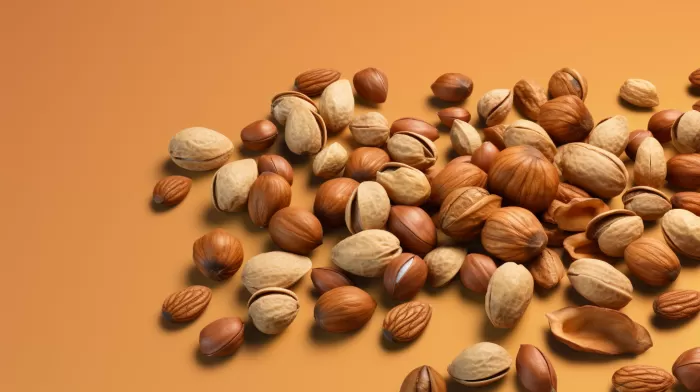You might be surprised to learn that not all fats are bad for your health. In fact, some fatty acids found in certain snack foods can actually help improve your heart’s health. Today, we’ll dive deep into the wonderful world of nuts and their potential benefits for your cardiovascular system, especially for those with type 2 diabetes.
Uncovering the heart-healthy secret
Canadian researchers have made an exciting discovery in their analysis of oleic acid and monounsaturated fatty acids (MUFAs) found in nuts. These specific types of fatty acids are believed to protect against coronary heart disease. The study involved feeding nuts and other snacks to over 100 participants, and the results showed that these healthy fats travel into the bloodstream, where they aid in keeping arteries functioning properly.
Let’s dig deeper into the science behind oleic acid, MUFAs, and how they work together to promote a healthy heart.
Oleic acid: The unsung hero
Oleic acid is a monounsaturated fatty acid (MUFA) found in numerous plant-based oils and is known for its various health benefits, such as reducing inflammation and improving insulin sensitivity. High levels of oleic acid can be found in nuts like almonds, cashews, and macadamia nuts, as well as olives, avocado, and even dark chocolate.
By consuming oleic acid-rich foods, you help reduce your risk for heart diseases, stroke, and other cardiovascular-related issues. Not only that, but oleic acid has also been found to boost your brain’s memory capacity and cognitive function.
Monounsaturated fatty acids: Good fats for a healthy heart
We’ve all heard about the “good fats” and “bad fats.” Monounsaturated fatty acids or MUFAs are definitely considered the good guys. MUFAs are fats that generally remain liquid at room temperature and solidify when refrigerated.
These healthy fats can have a beneficial impact on your cholesterol levels, reducing the harmful LDL (low-density lipoprotein) cholesterol, which is known to cause plaque buildup in arteries. By doing so, MUFAs may prevent heart diseases and stroke, while also stabilizing blood sugar levels – an added advantage for those with type 2 diabetes.
Nuts like almonds, peanuts, hazelnuts, and pecans are all excellent sources of MUFAs, along with healthy cooking oils such as olive or canola oil, avocados, and seeds like pumpkin and sesame seeds.
The fantastic health benefits of consuming nuts
Now that we have a clearer understanding of the heart-healthy fats found in nuts, let’s take a closer look at their additional health advantages. Here are some key benefits of including nuts in your daily diet:
- Rich in nutrients: Nuts are loaded with essential vitamins, minerals, and antioxidants, such as magnesium, selenium, and vitamin E.
-
Promote weight management: Due to their high protein and fiber content, nuts can help you feel fuller for longer, thereby reducing hunger pangs and assisting in weight control.
-
Support digestive health: Their high fiber content aids in regulating digestion, preventing constipation, and maintaining a healthy gut microbiome.
-
Enhance bone health: Nutrients like calcium, magnesium, and phosphorus play a crucial role in maintaining strong bones, and guess what? Nuts have them all.
-
Lower cancer risk: Studies suggest that nuts’ antioxidant and anti-inflammatory properties may lower the risk of certain types of cancer, such as colon and prostate cancer.
Choosing the right nuts for a heart-healthy snack
When it comes to selecting nuts for their heart-healthy benefits, consider opting for raw or dry-roasted varieties without added sugar, salt, or oil. Aim to consume a mix of different nuts, as each one offers unique nutritional benefits. For example, almonds are rich in vitamin E and magnesium, while walnuts provide an excellent source of omega-3 fatty acids.
As always, moderation is key. Nuts are nutrient-dense but also calorie-dense, so it’s essential to consume them in moderate amounts. A handful of nuts (around 1 ounce or 28 grams) per day is the recommended serving size for adults. You can enjoy them as a snack on their own or incorporated into salads, oatmeal, yogurt, or homemade energy bars.
Final thoughts
It’s time to give nuts the recognition they deserve as heart-healthy superstars. Packed with beneficial fatty acids, vitamins, minerals, and antioxidants, nuts are not only delicious but can also do wonders for your cardiovascular system, especially for individuals with type 2 diabetes.
Don’t miss out on these fantastic health benefits; make nuts a regular part of your diet, and start reaping the rewards for your heart and overall well-being.



